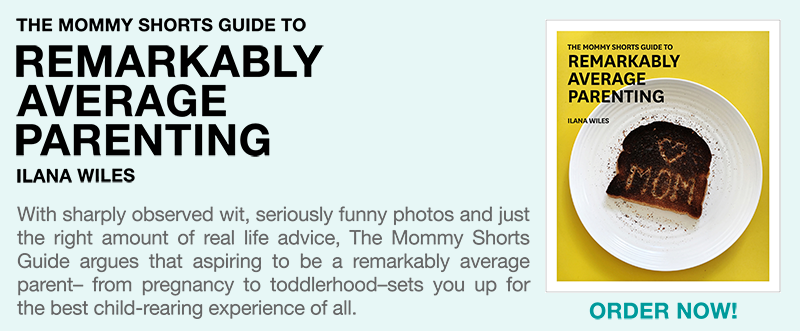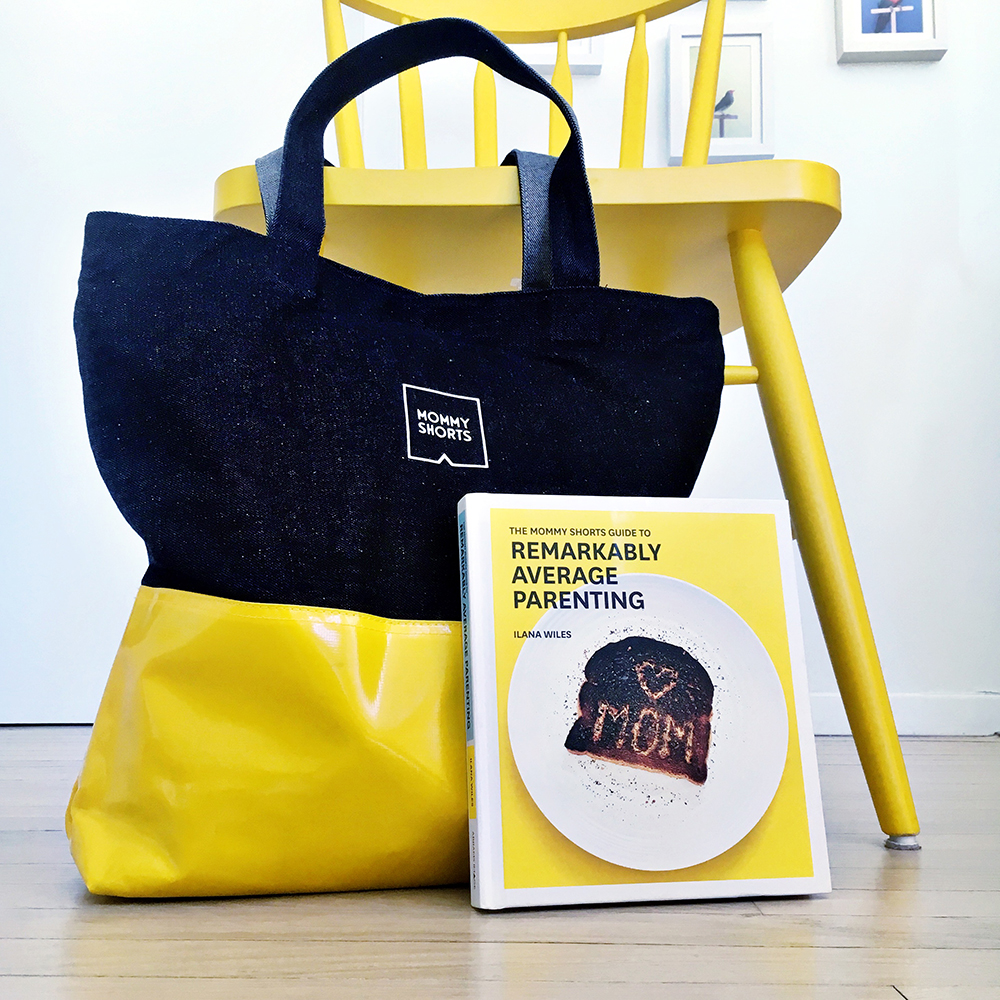
“Conversations with your Kids” is a series in partnership with Responsibility.org, an organization which helps parents promote good decision making, particularly around the issues of peer pressure and underage drinking. Each post explores the opportunity for honest conversation within a different family, along with expert tips to help us all establish open lines of communication with our children.
Christy lives in Arlington Texas with her husband and two daughters Ticia and Tayla, age 8 and 9 1/2. She finds that her daughters are most open with her when they are all doing something together, like cooking. She also uses “Mommy and Me” journals for topics they might not feel comfortable discussing face to face.


How do you approach discussing sensitive topics with your girls?
I try very hard to be honest always when my girls ask tough questions. I try to make sure that I am speaking at an age appropriate level and sometimes that means I need to ask them to give me time to think about my answer and I tell them I will get back to them.

Do you have any special methods for encouraging your girls to open up about things they might feel uncomfortable about?
We have “Mommy and Me” journals. I started this when Tayla (9) was about 7, and Ticia was around 5. Each of my girls have their own journal and they are able to write down anything at all in them that they may feel uncomfortable discussing face to face. They leave the journal on my bed and I write back. So far, the main topics have been friendships, fights with one another and feeling sad or unloved by someone. My hope, is that by starting this early, they will be more inclined to come to me with more serious issues later.

Have you ever felt unprepared when one of your daughters asked you a question about a sensitive subject?
Pornography has unfortunately been something that has come up. My oldest daughter, Tayla stayed over at a friends house when she was 7. Apparently, this friend had an IPhone with no parental controls in use. They were also left unsupervised with said phone for an extended time. This other little girl decided that looking up sex videos would be fun. (No clue how she would even know something like that existed). The next morning, when Tayla came home, she told me she needed to talk to me about something that happened. Then she proceeded to describe IN GREAT DETAIL some of the things she watched. Let me just say, I never in a million years imagined having that conversation with my SEVEN year old. It was absolutely heartbreaking for me and I was devastated with feeling like her innocence had been taken. I worked very hard at being honest with her about how the things she saw were NOT an accurate portrayal of what sex is supposed to be. I thanked her for telling me what happened and made sure she understood why it was inappropriate for her to see such things. It was an issue we dealt with for a very long time. As you can imagine, seeing something like that at 7 years old opens up a curiosity about sex that normally wouldn’t be there until (hopefully) much later. I struggled with serious anger at the other Mom for a long time. I feel like I’m mostly over it now and have just used it as a way to show my daughter that she can tell me anything at all and I will always be honest and open with her when she has questions or concerns.

What peer pressures do you fear the most or are you most concerned with addressing?
I feel like my oldest has already experienced peer pressure with looking up sex videos. Both of my girls have dealt with peers wanting to do things that would be breaking rules. Sometimes they say no because they know it’s wrong and other times they give in. I’m honestly pretty fearful of peer pressure regarding drugs. We talk about how drugs are not good for you and we talk about what they are. We’ve also discussed how even experimenting one time with drugs can ruin your life forever. I really hope we can make an impression on our girls to not do drugs. My husband is a nurse and has seen many horrible things happen to people who’ve done drugs.

Have you set any family rules or expectations? How do you plan on enforcing these rules, if you haven’t had to already?
My biggest expectation is that my girls don’t lie to me. I tell them to always be honest because they will get in more trouble for lying than for telling the truth. I’ve tried to make good on that. I explain to them that if they lie to me, then I can’t trust them. If I can’t trust them then it will be hard for me to help them. I also let them know that I am honest with them and I expect the same in return. They’re kids, they’ve lied. But I hope that continuing discussions will help them to at the very least, not lie about the big stuff.

How do you approach the subject of alcohol to your girls?
I think if you don’t make it a big deal, the temptation won’t be as great. Our girls are allowed a sip of what we are drinking if they ask to taste, but they know it’s only for adults to drink. When they have asked why, we tell them because alcohol affects our brains and kids’ brains are still developing and will react much differently than an adult’s brain. We also do not drive if we have had 2 or more drinks. The girls know this and we want them to view alcohol as a drink that you have to be careful with, but just a drink. I hope that by normalizing it and not making it the “forbidden fruit”, they will be less interested in partying and some of that stuff.


Have your kids encountered other families who differ in their parenting style and rules?
Absolutely. A big deal in our house right now is that a lot of their friends have smart phones. I just can’t justify that for my 8 and 9 year olds. No judgment for others who do allow it— we all have our own ways, and that’s exactly what I tell my girls. “I’m not (insert other child’s name)’s mother; I’m your mother.” This means I make the rules for this family. I tell them other families have different needs and activities and lives and they do what they need to for their specific situation. They resist me of course, but I feel like they will get over it and hopefully thank me later!

What is your goal for how you communicate with your daughters?
Honesty ALWAYS!!! I will always be honest with them and I hope they will always be honest with me, especially as we navigate the teen years. I want them to know they can come to me with anything and I will always help, love and support them.


Like Christy’s experience with internet pornography, a lot of kids surprise their parents with topics far beyond what the parent think is age appropriate. But once a child has been exposed to something, you really have no choice but to address it. Responsibility.org put together 10 tips to deal with this kind of situation.

1) Find the real question
Often a child will approach a larger issue by asking smaller questions first. It’s important to be attentive and receptive so you can let them get comfortable and ease into the bigger, tougher questions together.
2) Talk side-by-side
Kids, especially older kids, are more likely to open up if there’s not the pressure of a “serious talk.” Try bringing things up when they’re not forced to look you in the eye, like in the car or during an activity.
3) Don’t blow it off
It’s sometimes easy to think your kids aren’t ready to be faced with tough stuff and shy away from the topic at hand. If you don’t answer their questions, they will seek answers somewhere else, so make sure you satisfy their curiosity with an appropriate response.
4) Ask what they think
It’s important to have them dig into how they feel about what they were exposed to. If they can explain it, then you can gauge how far into the details you should go.
5) Find common ground
Sometimes it helps to talk about an experience of your own. In the case of the sex videos, explaining that you’ve seen things that made you uncomfortable too might make it less scary.
6) Don’t blame the friends
Telling your kid that her friends are a bad influence could add to their curiosity and draw them closer toward the negative influence, especially if the friends are older. Be conscious of how you verbally judge their friends.
7) Talk to other parents
Is this a larger problem in the neighborhood? Ask around. If so, find out how those parents are handling it. That being said, just because “Parent A” is handling the situation one way, doesn’t mean you have to do the same.
8) Be prepared for answers you don’t like
If your kid said “yes” when they should have said “no”, have faith that if you talk about your values and expectations, your kid is more likely to make a better decision the next time. This I how kids (and adults) learn.
9) Enforce boundaries
Make sure the punishment fits the offense. Take away cell phone privileges if you found your kid being mean online. Keep your kid home on a Friday night if you catch them drinking alcohol and remind them that not only is underage drinking against your rules, it’s illegal.
10) Build a strong foundation
Find opportunities at all stages of life to bring up tough topics. If they know you’re open, and they know they can be honest, then there’s less of a chance they’ll feel scared or alone when something tough comes up.
April is Alcohol Responsibility Month. To learn more about Responsibility.org and their #TalkEarly campaign which advocates open and early conversation around alcohol, click here.
—————————
This post was sponsored by Responsibility.org, but all thoughts and opinions are my own.
Photos by Raquel Langworthy.

























Her approach to drinking is so refreshing to hear. I love the idea of making it less of a forbidden fruit. But also making it clear that there are boundaries, ie not driving after 2 drinks or more.
The alcohol portion truly resonated with me. Both of my parents were VERY anti-drinking and would make it seem evil and speak ill of people who would drink. As a result, as soon as I hit college…drinking became my way of rebelling. It can definitely have the potential to turn into a forbidden fruit if not discussed or made out to be ‘bad’. I want to make sure to save this article for when my son is older. This is a FABULOUS article. Kudos to the mom!
I really like Christy’s approach, especially using the journals, the honestly policy and her explanations. Christy has clearly put a lot of thought into how to handle tough topics. Well done mama! And thanks for the advice!
The “Mommy & Me” journals are brilliant, I am going to start that with my girls. We have had to have some tough conversations because the priest at our Catholic church has given some sermons involving super inappropriate subjects (rape, animal mutilation, referring to the disabled as ‘retarded’) and my very astute 6 year old has picked up on some of it. I love Christy’s open, honest way of dealing with her kids; she doesn’t treat them like they are stupid just because they are kids, I love that! Great post.
First, congrats to Christy. You’re an excellent mom. Wow. Love the honesty rule and the journal. That’s a brilliant idea. I don’t think I’ve told my 9yo that I will always be honest with her and I need to do that. Thank you!
Wow!!! Christy’s approach seems to be an awesome one! I love the idea of the Mommy & Me journals and will likely use that once my munchkins are big enough to write (legibly).
I’ve loved this series! Everything about it has been beautiful – I’ve loved seeing how other moms approach things and the photographs have all been poignant and beautiful as well!
Thanks Responsibility.org and thanks Ilana for this series!
Keep up the great work Christy!!!
Thanks for your kind comments. They have made my day!! Ilana, thank you for having me be a part of this!
I’m just a big fraidy-cat about how to handle my 4 yr olds future discoveries and this is one of the best responses I’ve ever read. I think real life examples, like this, are so much more effective than expert opinions. Just brilliant. Big congrats to Christy for these practical ideas and Ilana for this fab website.
Christy has some great ideas. I can see the journal being very effective and wish maybe my mother would have done that.
Well I’m from Germany and loved reading this Articel until it came up to the alcohol Bit. I Dont think it is okay to let Kids even try a sip of it. Not to mention the driving After having
“Only” 2 Drinks. Alcohol and driving does not go together never. Not even after 1 Drink.
All the Rest is great
This is an excellent post. My daughter is only 3 but we have had to have some discussions about why friends can be mean, etc. This has given me some great ideas on how to handle the tough questions as she gets older and the questions get more difficult. Kudos to Christy and thank you both!
Wow, thank you for sharing your thoughts about this. My daughter is only 6 months old, but my husband and I always talk about how we’re going to respond when she starts asking us difficult questions. I’m gonna share this with him. Thanks!
What a great and beautiful mom! Your girls seem great. I found your advice really helpful.
Great article. I wanted to pass along an associated resource for those who are interested in this topic. I am a child development specialist and parent coach and I run a large and active discussion group on facebook whose sole purpose is to help parents formulate answers to children’s tricky questions as well as their comments and curiosities about subjects that may be difficult to talk about. Any and all are welcome to join, so that you might get ongoing support like this on a daily basis! I have shared this article on the page as well. For those who are interested, it’s here:
https://www.facebook.com/groups/whatdoisaykids/
Great article! I need all the help I can get…
Just want to say thank you for the great advise,I will be adding some of your ideas into my parenting style,thank you!
[…] article, on 10 Tips for Talking To Your Kids, has a mom who has lots of tips about how to help her kids when awkward conversation topics come […]
Christy’s girls are lucky to have a mom who is willing to face these tough topics with love, strength and honesty!
Cheap ray bans sunglasses Ray Ban RB4101 Jackie Ohh Sunglasses Gold Frame Crystal Brown Gr 101-145] – * Cool Ray Ban RB4101 Jackie Ohh Sunglasses Gold Frame Crystal Brown Gradient Lens designer eyewear is stylish and functional. The Ray Ban lightweight and durable material used makes them functional on both men and women.* This stylish Ray Ban RB4101 Jackie Ohh Sunglasses are one of the most unique Now buy Price Save 87%
On the flip side, my parents had the same approach to alcohol as you, allowing sips and such….and I had an alcohol problem by the time I was 19. There is no easy answer for that one, as there is so much more than knowing responsibility. You just do the best you can. I love the mommy and me journal. Wish I had thought OS something similar when my oldest was young. She has a hard time with face to face conversation.